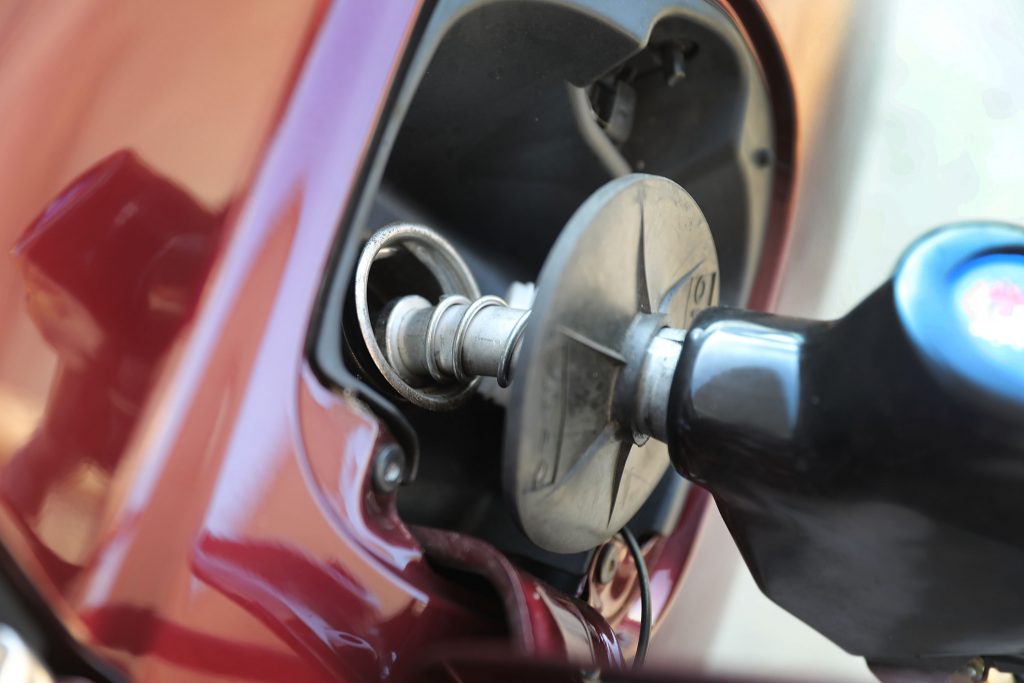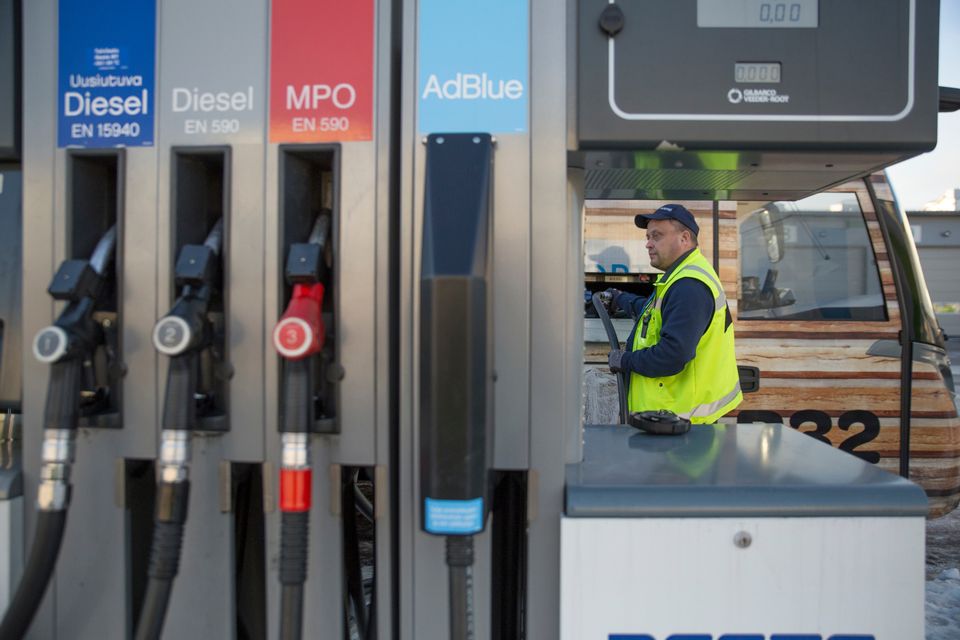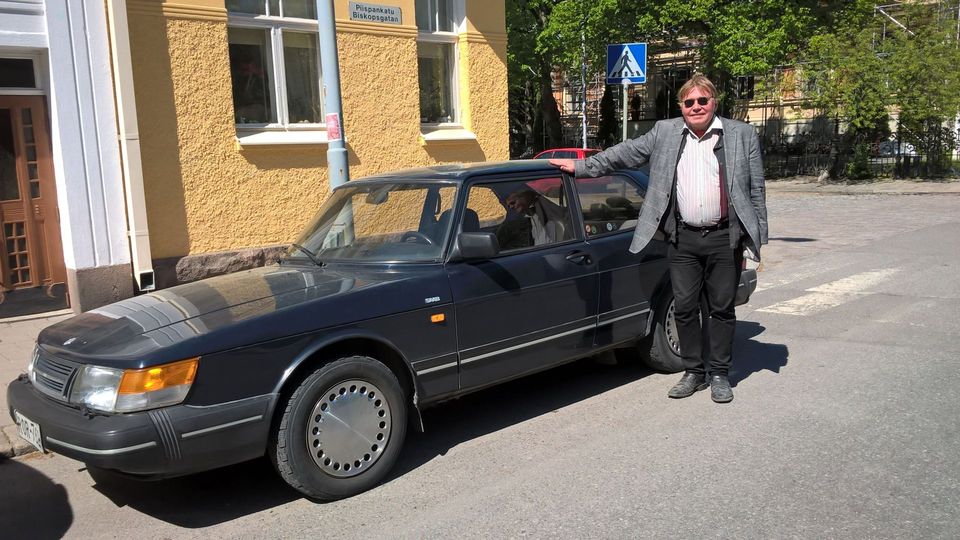Finnish chemistry professor develops “revolutionary” biofuel

A professor at Turku’s Åbo Akademi and Sweden’s Umeå University says he has managed to develop a fuel based entirely on biomass with the same properties as fossil fuels.
Chemistry professor Jyri-Pekka Mikkola says the new fuel is a made by combining water and ethanol in a catalyst. The resulting concoction is a fuel with a higher octane than petrol or diesel.
“If we consider how ethanol is made, it’s simply sugar, and that is the most common form of biomass these days. You can use food waste, agricultural waste, old newspapers – almost anything which contains sugars that can be fermented into ethanol, and that’s how we get what’s needed,” Mikkola says.
The scale and cost of producing the biomass-based fuel is considerably cheaper than setting up an oil refinery, he says.
An oil refining facility can cost around 1.5 billion euros to construct, while a setup to produce the biomass fuel can be done in shipping container-sized structures for significantly less money. And, he says, the facilities can be put virtually anywhere.
Mikkola says that taxi or trucking firms could get their own containers and produce their own fuel locally. The containers are small enough to be placed behind a petrol station or by a community centre, for example.
Like fossil fuel, without the fossils
The fermentation process results in the fuel equivalent of gasoline or diesel, as well as flammable gas which could be used in vehicles or even on household stoves. The third by-product of the process is water, which has also become an increasingly dear commodity.
The new fuel can be used in any engine because it is like an exact copy of a fossil fuel, without itself containing a single fossil-fuel molecule, says Mikkola. He argues that the petroleum industry’s current practice of adding ethanol to petrol is foolish and politically motivated.
“First of all, automobile catalytic converters aren’t able to handle [the ethanol], because they were designed for pure petrol. The ethanol by-products get converted into carcinogenic materials, and on top of that ethanol’s specific energy content is half that of petrol. So it’s better to make petrol out of the ethanol and drive on pure petrol,” he says.
However, there is the question of whether adequate amounts of raw materials will be available for biofuel production. Some biofuel sceptics warn that a shortage of waste materials to turn into fuel could lead to increased clear-cutting of forests, which in turn would lead to decreased carbon uptake by trees.
“That’s a good and difficult question,” Mikkola says. “I think we still have to consider all alternatives, because we’re wasting huge amounts of fuel on the roads.”
“Sweden consumes some 15 billion litres of fuel every year, and Finland about half that. That’s an amount that we have to radically reduce.”

Recent estimates have shown that the airline industry is the culprit behind some eight percent of the world’s carbon emissions, not the two percent many once thought.
“Air travel will be the biggest problem in the future. Today there are already two million people in the air every second of the day,” Mikkola says.
Currently nine out of 10 flights are based in Western countries, but within a couple of decades 90 percent of flights will be coming out of Asia. Mikkola says the looming exponential increase means that something needs to be done.
High-octane, secret tests on Dad’s old Saab
The car Mikkola first used to test his fuel, an old Saab, was given to him years ago by his father. During that first test the vintage, average-looking saloon was filled up with the biofuel with an octane rating of more than 100. Regular petrol sold in Finland has an octane rating of 95.

Vehicle tests were carried out in south-western Turku and in the forests of Sweden’s Västerbotten region.
“Everything has been tested and sent to certification labs, but we still wanted to test the fuel on something that wasn’t too expensive in case the motor blew. The car took off like a rocket! It is [like] pure gasoline and old cars like that. It drove better than it does on normal petrol with added ethanol,” Mikkola says.
Secret recipe
Due to the revolutionary nature of the research, Mikkola says the driving tests were carried out in secret in order to keep curious spying eyes away from the effort.
He says those involved cannot talk about the fuel creation process in much detail until it gets officially patented. He says that mobile phones have been forbidden in meeting rooms and that computers containing sensitive project data are never connected to the internet.
His description may sound a bit cloak-and-dagger, but someone apparently broke into his department at Åbo Akademi in Turku last week to steal the fuel recipe.
“Someone went into all the rooms and rummaged through all the locked filing cabinets. We don’t know what they were after but security cameras captured nothing and they didn’t take any computers,” he says, adding that thieves broke into his office in Umeå and took a number of items a few weeks ago.
Mikkola chalked it up to the recent burst of publicity the research has received. He said his aim is not to market the biofuel itself, but rather the underlying tech which produces it.
Several of Mikkola’s container-sized fuel producing facilities have been ordered so far, but none have yet been constructed. The first is expected to be assembled in a few months.
Correction: Chemistry professor Jyri-Pekka Mikkola is Finnish. Because of an Eye on the Arctic editing error, a previous version of this article stated that he was Swedish.
Related stories from around the North:
Canada: Arctic flights save time, but fuel climate change, Cryopolitics Blog
Finland: Chinese investors back out of 2 biofuels projects in Finland, Yle News
Norway: Norwegian cruise company takes hybrid-electric shift, The Independent Barents Observer
Russia: China wants in on Russian wind park project, The Independent Barents Observer
Sweden: Northern Swedish city gets Europe’s largest battery factory, The Independent Barents Observer
United States: Alaska’s first, electric public transit bus ready to hit Anchorage streets, Alaska Public Media




In the first paragraph it is stated that the fuel is made by combining water and ethanol. In the sixth paragraph it is stated that water is formed as a valuable by-product. I can’t see that both of these statements can be true.
The fuel is claimed to be “equivalent to gasoline or diesel (paragraph 6) since it is “like an exact copy of a fossil fuel” (paragraph 7). To me this means that the fuel is a mixture of hydrocarbons which means that the ethanol has to be combined into larger molecules and that the oxygenated carbons are simultaneously reduced. At least the reduction is energy-consuming which raises the question from where the energy is taken. Is some of the ethanol further oxidised in order to supply that energy?
There’s another peculiarity in the text, “higher octane than petrol or diesel”.
The combination of these comments makes it hard for me to take this article seriously. Either there are a lot of additional information lacking from the text that could clarify my doubts, or I don’t understand scientific principles as good as I think.